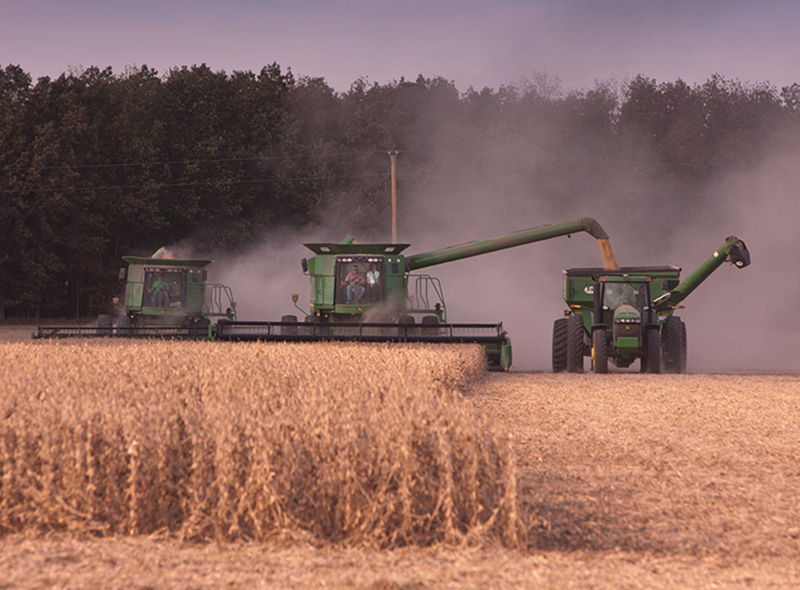Clean Fuels Policy Priorities
Champions of Progress
Our dedicated team of clean fuels experts champion progress at the state and federal levels. Clean Fuels Alliance America advocates on behalf of its members in regulatory and legislative issues to advance the growth of biodiesel, renewable diesel and sustainable aviation fuel in the United States.

Requires transportation fuel sold in the United States to include annually set volumes of advanced clean fuels such as biomass-based diesel.
Federal tax credits adopted by Congress incentivize homegrown production and market access for biodiesel, renewable diesel and SAF.
Clean Fuels’ Fair-Trade Coalition supports fair trade in the biodiesel market, advocating for trade protections against unfairly subsidized and dumped biodiesel imports.

- Letter on RFS Volumes to President Trump from 28 Representatives
A strong RFS rule will benefit our constituents by lowering prices at the pump, creating and maintaining U.S. biomanufacturing jobs, and driving economic growth. The domestic biofuels industry stands ready to increase availability of affordable fuels options and support the administration’s goal of American energy dominance.
- Letter to EPA from Four Midwest Governors on 2026 RFS Volume
We urge the EPA to establish a 2026 RVO of no less than 15 billion gallons for conventional ethanol and 5.25 billion gallons for biomass-based diesel-reflecting the growth in domestic production capacity and feedstock supply.
- Letter to EPA from 16 Bipartisan Senators on 2026 RFS Volumes
We ask that the EPA raise RFS volumes for biomass-based diesel and advanced biofuels to levels that are consistent with production and availability, while ensuring an equivalent increase in total volumes to preserve demand across all categories of biofuels. We have seen the cost to rural communities when RVO levels are set too low.
- Letter to EPA from Clean Fuels, Farm, and Feedstock Groups on 2026 RFS Volume
We therefore ask that EPA propose and finalize the 2026 biomass-based diesel volume at not less than 5.25 billion gallons, along with a commensurate increase in the advanced biofuel volume to accommodate the step change in biomass-based diesel.
Setting these volumes for 2026 and establishing consistent growth for 2027 and beyond based on the industry’s investments and projections will ensure that American consumers can access affordable and clean transportation options. These volumes will support farm security, create jobs and economic opportunity, and further President Trump’s goal for U.S. energy dominance. - Comments to CARB on Second 15 Day Package
Clean Fuels and CABA submit comments to CARB on Second 15 Day Package
- Comments to CARB on 15 Day Package
Clean Fuels and CABA submit comments to CARB on 15 Day Package
- Clean Fuels Petition for Reconsideration of 2024-2025 RFS
EPA’s multi-year projections for the 2023-2025 Renewable Fuel Standards did not sufficiently consider ongoing and planned industry expansions, resulting in low volumes that fail to meet the RFS program’s objectives to increase the volume of renewable fuel that is blended into the nation’s transportation fuel supply.
- Group Letter Urging Treasury Action on 45Z Tax Credit
Twenty-five trade associations representing producers, feedstock providers, blenders, consumers, and retailers of low-carbon, renewable fuels sent a letter to Treasury Secretary Janet Yellen, urging Treasury to finalize and publish guidance for the §45 Clean Fuels Production Credit as soon as possible.
- Co-Processing
Clean Fuels advocates policies to increase biodiesel, renewable diesel, and sustainable aviation fuel (SAF) production and the associated jobs, economic opportunities, agricultural markets, and environmental benefits. Co-processed fuel does not generate the same benefits and should not qualify for policy incentives.
- Letter to EPA on 2026 RFS Volumes from Nine Trade Associations
Each of our industries are committed to reducing greenhouse gas emissions, and we recognize that sustainable biofuels offer some of the most substantial immediate benefits to deliver carbon reductions. The EPA should utilize the RFS to improve energy security, bolster domestic industry and manufacturing, and maintain America’s leadership in developing and using sustainable, clean transportation technologies. While our industries will continue to make investments in producing, distributing, and using low-carbon fuels, EPA can and should send a strong signal to the market through robust RVOs.
May 22, 2025
Clean Fuels Applauds Bipartisan Congressional Letter Supporting Robust 2026 RFS Volumes
May 20, 2025
Clean Fuels Comments on Treasury Notice of Intent to Propose §45Z Rules
April 10, 2025
Clean Fuels Commends USDA on Interim Rule for Climate Smart Ag
March 19, 2025
Clean Fuels, Farm, Feedstock Groups Ask EPA to Set 5.25-Billion-Gallon 2026 RFS BBD Volume
March 17, 2025
Clean Fuels Alliance: Warning — Expect Gridlock Ahead
March 13, 2025
Clean Fuels Expresses Disappointment in RFS Delays
March 10, 2025
Clean Fuels, Trade Groups Applaud Bipartisan, Bicameral Renewable Fuel for Ocean-Going Vessels Act
March 6, 2025
California OAL Flags Key Concerns for Biomass-Based Diesel
February 28, 2025
Clean Fuels, Others Urge EPA Administrator Zeldin to Set Robust, Multiyear RFS Volumes
February 20, 2025
